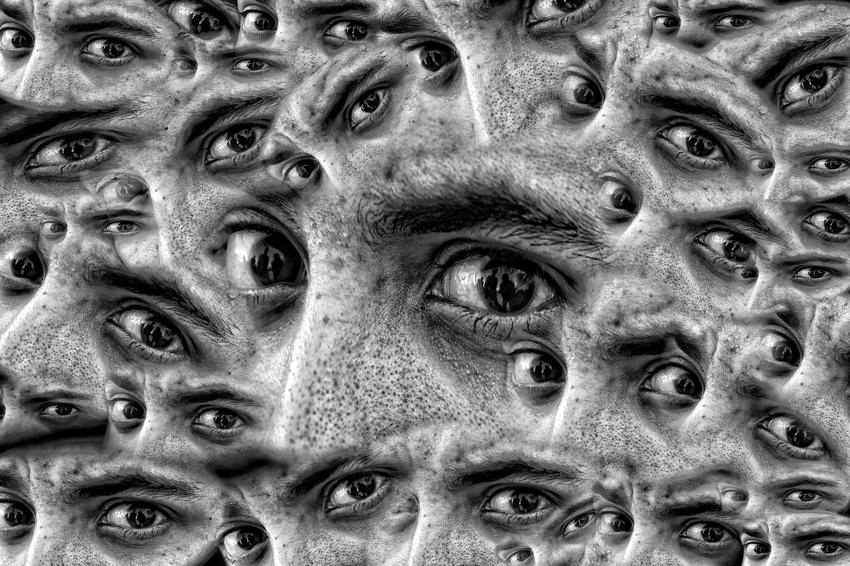
If you are afraid of having your picture taken, being watched, or being looked at by other people, you could have scopophobia. There are ways to find out.
I remember being frightened right before speech class. I knew that everyone would be staring at me, and maybe some of them would be making fun of me too. However, since I really don’t have scopophobia, I pushed through the speech and completed about five more assignments during the semester.
For some people, a speech class is impossible. For some, taking selfies is a no go. I often wonder as I browse social media why some profiles have no pictures. I think it’s possible that the owner of the profile could have scopophobia.
I think my mother had the fear of being watched. I remember how she would run when people wanted to take her picture, and she often hid her face if people looked at her too much. You know what, I never considered her little quirk to be an actual phobia. I guess I was wrong. I learned about my mother’s phobias and severe anxiety later in my life.
With that information, I will explain the definition of scopophobia. It’s basically a fear of being looked at, a fear of being in pictures, and a fear of any sort of visual attention. Ophthalmophobia is another name for this fear of being watched.
There are other symptoms as well, but they differ from person to person. Some people may experience these symptoms but also experience dry mouth too. Some people may not even experience all these symptoms at all and may experience something completely different.
Although scopophobia is a social disorder, closely linked to anxiety, it can evolve in all sorts of ways depending on the person and the situation.
Like most phobias, it can be caused by several things. We never really know what someone is going through until we understand what made them the way they are. Keep this in mind and never judge.
Genetics can play a role in the fear of being watched, as a child can take on some of the same traits, including phobias, as their parents, although this is not the most common cause. Scopophobia can develop when witnessing others going through the same thing as well.
Scopophobia, unlike some other phobias, is more of a social anxiety based fear. Most of these cases come from a form of childhood trauma or event. It can also develop over time due to bullying or abuse.
Some victims of abuse, over time, start to lose healthy self-esteem and this causes them to avoid the looks of others and especially causes them to shy away from photos.
Another cause of this phobia may be fear which comes with the suffering of Tourettes or epilepsy. As both these conditions can draw attention during flare-up or attack, sufferers get used to the unwanted attention and then start to fear this attention, drawing away from social activities.
Scopophobia can even surface in otherwise social people. It can develop because of stage fright or natural fears during presentations. On the other hand, it can show up in those who have poor body image or personality disorders.
As you can see, there are many causes of the fear of being watched. The most important thing we need to know is how to deal with scopophobia. And there are many ways to deal with that too.
There are a few ways to overcome or treat scopophobia, but most require professional help. One way you can try to go at it on your own is to endure.
For instance, ask someone to purposely stare at you and see how long you can stand it. Set a time and each time, let them stare at you for a longer period. At some point, you will either tell them to stop or you will become numb to the looks.
You can also practice telling yourself that the stares aren’t real, even if there are people staring at you. You can practice taking a picture every now and then until you can endure a photo with someone on rare occasions. It won’t be easy, but overcoming or treating a phobia rarely is easy.
If these don’t work, you should consider professional help such as:
You can also try meditation. As with most any problem or fear, meditation takes you away from the negative aspects of what surrounds you and places you at the present moment in your thoughts.
Yes, you can feel the fear, but gradually, you can clear your mind of the fear, just as you clear out the other clutter that’s been weighing you down lately.
The last resort, in my opinion, is medication. No, I don’t like medicating the “wrong” out of me, but sometimes, it must be done. If your scopophobia is causing you to have severe panic attacks, loss of appetite, or even extremely negative thoughts, you might consider this option.
If you’re seeing a psychiatrist, they can recommend a trial that can successfully treat your problems with this phobia.
There’s one last thing I need to say. It’s okay to have a healthy fear of some things. But when it comes to phobias, those fears can get out of control in a short period of time. If you notice the signs of scopophobia, the fear of being watched, within yourself or someone you love, it needs to be addressed as soon as possible.
We’re fighting for the best possible outcome in mental health, and we’re going to conquer our fears.
References: